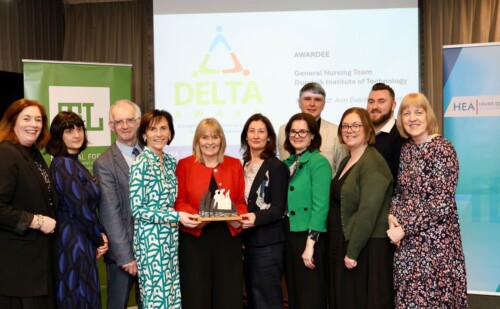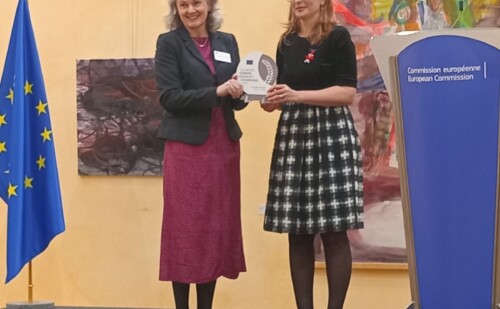
Review of Intellectual Property Policies & Procedures in Higher Education Published
By Diarmuid Slattery
Posted: 8 February, 2018
The Higher Education Authority (HEA) and Knowledge Transfer Ireland (KTI) are pleased to announce the publication of the Review of Intellectual Property Management and Conflicts of Interest, which provides a framework for the strengthening of IP policies and procedures in higher education.
Commercialisation of intellectual property is an important area of activity for higher education institutions worldwide, supporting their broad mission of dissemination of research results. Often a long-term process, commercialisation complements teaching and research, delivering economic, educational, and societal benefits and developing the next generation of talent for industry. Ideas for innovation, which ultimately lead to commercialisation, originate from many sources and frequently build on a combination of individual research projects over time. IP commercialisation is a starting point enabling further investment, IP and technology development within companies that may, in turn, deliver new products and services to the market.
In Ireland, the system that supports commercialisation of institutions’ intellectual property has evolved rapidly over a short time. Significant developments have included the provision of funding for dedicated staff under the Technology Transfer Strengthening Initiative; the introduction of the National IP Protocol; and the creation of KTI to support system-wide knowledge transfer. All of this sits under the national Policy for Research Commercialisation, which was published in 2012.
Focusing on Ireland’s higher education institutions, the Review examines IP-related policies, their implementation, and the management of potential conflicts of interest. The review concluded that the higher education institutions have demonstrated good practice, particularly in the management of IP commercialisation, but also identified some areas for improvement.
HEA Chief Executive, Dr Graham Love, commented that, “There has been rapid change within many of the higher education institutions in Ireland, with an increased emphasis on IP commercialisation and on enhancing links with industry. Good progress has been made, and the implementation of the recommendations of this Review will result in simpler and more accessible IP policies and more robust management procedures.”
Implementation:
The Review makes ten recommendations, primarily in relation to conflicts of interest and spin-out companies. The process of implementing these recommendations has already commenced, and enhanced engagement is underway between HEA, KTI and other stakeholders with the aim of strengthening IP policies and procedures.
KTI is leading on the development of the responses to these recommendations, in cooperation with the HEA. The HEA will embed these outcomes into existing oversight processes to ensure their ongoing implementation.
Director of KTI, Dr Alison Campbell, said “It is pleasing to note that the IP policies that underpin Ireland’s vibrant research commercialisation endeavours are broadly in line with international good practice. Working with the institutions to further simplify and strengthen local policies will bring greater consistency and clarity for stakeholders”.
Notes to Editors:
The Review of Intellectual Property Management and Conflicts of Interest was commissioned by the Higher Education Authority (HEA) in partnership with Knowledge Transfer Ireland (KTI) in response to issues raised at the Public Accounts Committee. The review was authored by IP Pragmatics.
Commencing in 2017, the Review covered 22 higher education institutions in Ireland: 7 Universities, 14 Institutes of Technology, and one specialist College. Methodology included analysis of relevant institutional policies, a questionnaire completed by Technology-Transfer Officers and research managers, and in-depth interviews.
Full details are contained in the report below.
The HEA leads the strategic development of the Irish higher education and research system with the objective of creating a coherent system of diverse institutions with distinct missions, which is responsive to the social, cultural and economic development of Ireland and its people and supports the achievement of national objectives.
KTI is the national office that helps business to benefit from access to Irish expertise and technology by making it simple to connect and engage with the research base in Ireland. KTI enables companies to innovate their business by signposting to novel technology and research expertise in Ireland and by providing best practice guidance to simplify the process of accessing this rich source of opportunity.
The national IP Protocol 2016 was produced by KTI through a process of consultation and on behalf of the then Department of Jobs, Enterprise and Innovation (DJEI) and published in January 2016. The new Protocol entitled “Inspiring Partnership – national IP Protocol 2016” is an update on the national Protocol published in 2012 and may be accessed here.
Contact:
For further information, contact Malcolm Byrne, Head of Communications, HEA: (086) 2237102
Review of Intellectual Property Management and Conflicts of Interest


